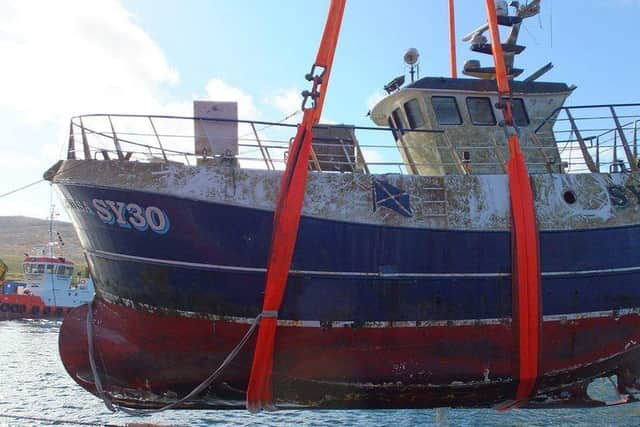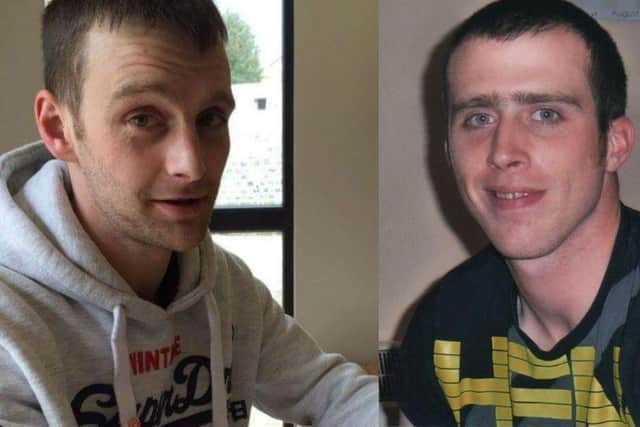Stornoway trawler crewmen died because of a faulty life raft
The Stornoway-registered Louisa sank on April 9, 2016 as it lay at anchor in Mingulay Bay in the Outer Hebrides.
The bodies of crew members Martin Johnstone, 29, from Halkirk, Caithness, and Chris Morrison, 27, from Leverburgh, in Harris, were found shortly after by rescuers. Fellow crew member and skipper, Paul Alliston, 42, from Lochs, Lewis, remains missing despite several major land and sea searches.
Advertisement
Hide AdAdvertisement
Hide AdThe fourth crew member, Lachlann, Armstrong, 28, from Stornoway, was able to swim to shore where he clung to rocks before being rescued by lifeboat.


Following a fatal accident inquiry (FAI), Sheriff Principal Derek Pyle said a decision could not be reached on the cause of the flooding.
He said the life raft did not inflate because its gas canister was empty.
Sheriff Principal Pyle said the CO2 cylinder had not been filled by a subcontractor during a service, leaving it useless.


Following the tragedy the Louisa was raised and taken to Glasgow to be studied by experts from the Marine Accident Investigation Branch(MAIB).
But they were unable to determine what caused her to start foundering bow first in the early hours as the men slept below deck, leaving them to scramble into the water.
In his determination, Sheriff Principal Pyle said the men's chances of survival was directly linked to the failure of the life raft to inflate.
One crewman crawled into the roof of the wheel house as the Louisa was sinking and managed to deploy the life raft. When it failed to fill with gas they vainly used other flotation equipment to prevent it from sinking.


Advertisement
Hide AdAdvertisement
Hide AdSheriff Principal Pyle said: "If the crew had been able to climb aboard an inflated life raft they almost certainly would have survived, given that the general weather and sea conditions were benign."
The FAI also identified an issue with the men's lifebelt buoyancy aids.
The men were found face down in the sea when the belts failed to hold them in a position where they might have been able to breathe.
The sheriff principal said there was no evidence a better design would have saved their lives, adding that it was hoped international rules on how this type of belt was manufactured would solve this problem.
The FAI heard that the crew's alert to the boat's sinking was detected and transferred through a number of sites to a search and rescue centre in Stornoway.
The centre was unable to contact the Louisa, and it "took time to establish the boat's exact location".
When the location was identified the RNLI’s Barra lifeboat and a coastguard helicopter from Stornoway were launched to the scene..
In his determination, the sheriff principal commended the Barra lifeboat crew for their efforts, while also recording that the Maritime and Coastguard Agency had made changes to update and enhance its response to satellite distress beacon alerts.
Advertisement
Hide AdAdvertisement
Hide AdHe said this included improved computers and the immediate mobilisation of search and rescue without exact location information, in expectation that more accurate details would follow.
A message from the Editor:
Thank you for reading this article. We're more reliant on your support than ever as the shift in consumer habits brought about by coronavirus impacts our advertisers.
If you haven't already, please consider supporting our trusted, fact-checked journalism by taking out a digital subscription.
Comments
Want to join the conversation? Please or to comment on this article.